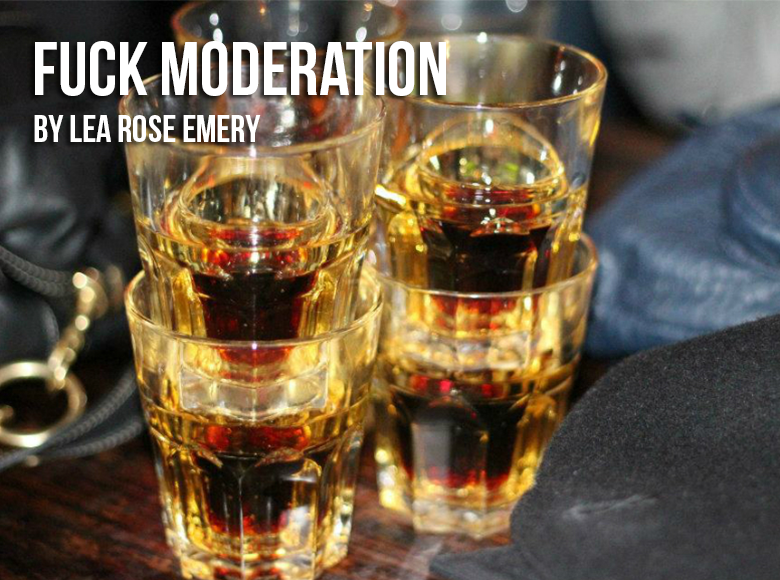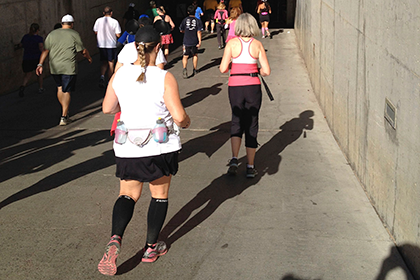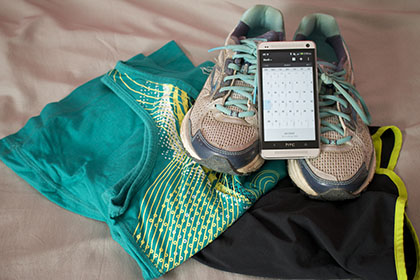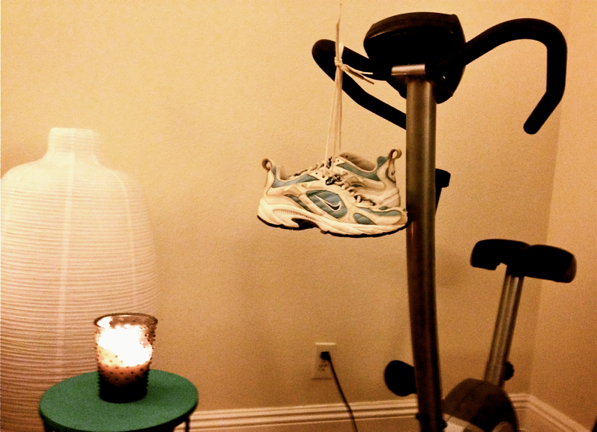January is a divisive month in England—large portions of the population have decided to spend the month sober in an attempt exorcise the sins of 2013. Some make it through the month and receive their imaginary gold star and real-world sense of superiority, some don’t, but either way the rest of the population thinks they’re idiots. In pubs, bars, and restaurants across the country the disdain for sober Januariers is palpable.
Well, the last three years I was one of the sober January idiots and now I’ve taken it a step further: I’m about 7 and a half months into an alcohol-free year. A year of no booze at all—not even wine, which at one point I viewed as so non-alcoholic it was basically like drinking a glass of quinoa and Gwyneth Paltrow’s sweat. None of it. The lovely comedian Luke Toulson has a line about how ridiculous it is that people always ask why you don’t drink anymore, because it’s not like the answer is ever going to be “Oh, well I was just TOO happy and successful!” This is spot on, so I don’t feel the need to go into why I decided to give it up for a year. But in addition to the ‘why’ there was another question I kept running into—nearly every person I told looked quizzical and asked why I didn’t simply… drink…. in moderation? If you’ve ever tried to give up anything you’ll be familiar with the fist-clenching and teeth-grinding this infuriatingly matter-of-fact tone provokes. I spent the first month after I gave up smiling manically and struggling not to shout “OH WOW! Wait, let me get this right: just DON’T drink do much! Oh now I’ve got it—what a helpful idea! I’m sorted!” It’s not just annoying, it’s also counter-intuitive. You would never ask a heroin addict why they don’t just try doing a little heroine. You would never say, “Oh come on, just have a one little hit—it’s my birthday!” It seems ludicrous, right? But alcohol is addictive too, and everyone knows that. We know alcoholics and that it’s horrible, dark place that no one wants to go to. So why does it seem weird for other people to want to stop the habit when they see it heading in the wrong direction?
I was never an alcoholic, or close, and this post isn’t about those people with serious drinking problems who hide behind being able to give up for a week or a month. But I think there are a lot of people like me who aren’t alcoholics yet definitely drink too much or just have a problematic relationship with drinking. Like, I don’t know, all of England. Seriously, go anywhere in England on Friday night. The pub. Work. Church. You will see people drinking too much. Not everyone, of course. There are some lucky people who never seem to get addicted to anything, who just aren’t wired that way—that annoying friend who smokes two cigarettes eight Saturdays a year while saying “I could really take or leave these, you know?” as you sit there gripping your 15th cigarette of the day and try not to put it out in their smug little eyeballs. Similarly, as crazy it sounds, there seems to be evidence that some people can do heroine without addiction forming; if you’re interested take a look at ‘Occasional and Controlled Heroine Use: Not a problem?‘ (HINT: The answer is for some people it is not). But on the other end of the spectrum, there are people who can become addicted to anything—I used to smoke 20 or 30 cigarettes a day, and when I quit I quickly got hooked on the endorphins from exercising. EXERCISING. Weirdly, smoking is now something I can do in moderation—I took a break where I didn’t smoke at all for about 6 months and for the last few years I’ve found I can smoke socially, but not without a lot of thought and effort and putting out cigarettes in people’s eyes. The addiction didn’t go away, I just got it far enough away to keep it in check. I’m hoping to do the same with alcohol—I’m giving it up for a year hoping to get far enough away that when I come back to it I can do that in moderation, too. But maybe I won’t: it might be something I simply can’t get myself to do in moderation, in which case it’ll have to be gone forever. And I don’t think there should be any shame in that.
It’s certainly not a perfect approach, but just telling myself that I would cut down didn’t work. Between doing standup and socializing, I’m in bars and pubs nearly every night of the week and for whatever reason the same willpower that gets me up for early morning runs and keeps my smoking to the social level seems to be on a coffee break whenever it comes time to turn down the next drink. So completely cutting it out is the best plan I could come up with and constantly facing the cultural obsession with moderation made it not only an uphill battle, but an embarrassing one. Telling friends I wasn’t drinking was a consistently humiliating affair, riddled with sharp intakes of breath, worrying looks and choruses of “not drinking at all? Isn’t that a bit… EXTREME!?”
Right—”extreme.” Extreme was everyone’s favorite buzz word in this situation, as though not having a glass of moderately priced sauv blanc (ECHO FALLS GENERIC WHITE WINE) with dinner is somehow akin to duct taping myself to a live cheetah and bungee-cording off Tower Bridge. I felt freakish. Why would I cut it out—everything in moderation, right? Everything. Everyone should do everything in moderation. I have no idea where I first heard that but it’s so familiar to me, to us, it now sounds true. This ubiquity of moderation rhetoric makes it seem that it is obvious solution, that it’s no trouble for everyone to just keep themselves in check. Surely it’s only gluttonous ogres swigging Lambrini by the bucket that can’t control themselves and, oh god, that means I’m one of those ogres because I can’t control myself (a preference for Lambrini is purely coincidental). It took me a long time to wade through this language and this attitude and realize that simply can’t be right. There are lots of people who aren’t full blown addicts but must struggle to do things in moderation—whether that’s booze, cigarettes, sex, drugs, Nutella—or in my case all of the above. I mean, substances that are addictive are inherently difficult to do in moderation. That’s what that word means. So we should probably get over the idea that moderation is the easiest thing in the world for everyone and, more importantly, that it is the answer for everyone. In fact, when you encourage someone who’s struggling with an addictive substance to do it in moderation what you’re also saying is “Hey, you know that stuff where as soon as you have a bit you want more and more and more until it makes you unhappy? Yeah, have a bit!” It’s not helpful to tell someone to have just a little alcohol if they’re struggling with it, just as it’s not helpful to tell someone who’s dependent on food to have just a little cake. Has any person ever eaten just a little cake? No. No people. Only witches.
So, instead when you run into a friend who is abstaining completely, whether temporarily for a good start to the New Year or for forever, don’t encourage them to drink a bit. Be supportive and treat it as a completely legitimate, if not necessary, alternative for those people when moderation is not an option. No one is trying to ruin anyone’s fun, and it’s not a commentary or judgment on your drinking. In fact, be grateful for your own healthy relationships with alcohol. Or sex. Or cigarettes. But not Nutella—never Nutella. That cruel mistress owns us all.
Originally written by Lea Rose Emery in January 2014.

Photo by Remi Coin



